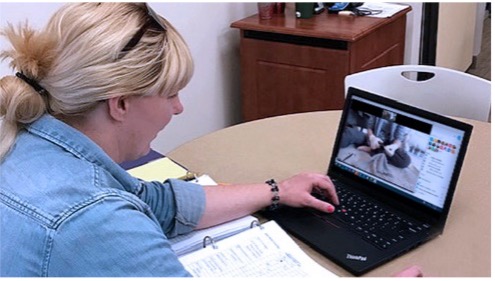 News Release
News Release
Oncotelic’s Dr. Anthony Maida to Present at 2nd Annual TGF-β for Immuno-Oncology Drug Development Summit in January 2022
Oncotelic Therapeutics
Oncotelic Therapeutics, Inc. ("Oncotelic" or the "Company") (OTCQB:OTLC), a leading developer of TGF-β therapeutics for oncology and virology, today announced that the Company’s Chief Clinical Officer and Board Director, Dr. Anthony Maida, will present at the upcoming 2 nd Annual TGF-β for Immuno-Oncology Drug Development Summit ( tgf-beta-summit.com ), which will take place virtually from January 25, 2022 to January 27, 2022. “There is significant worldwide interest in the clinical application of anti-TGF-β inhibitors, in combination with checkpoint inhibitors, as well as other immuno-oncology and chemotherapeutic options. We look forward to sharing the clinical promise of OT-101 in this setting.” noted Dr. Anthony Maida, Chief Clinical Office – Translational Medicine. TGF-β has been recognized by drug developers, for many years, as holding vast therapeutic potential due to its vital role in cell functioning and signaling. But its complex nature and its ability to be both tumor promoting and tumor suppressing has presented many obstacles for the industry. However, the field appears to be at a tipping point at present, with more candidates moving through clinical evaluation, pointing to an explosion of new data on the way. “I am excited that we have the opportunity to join other professionals in the field in January to explore novel insights into targeting TGF-β from discovery through clinical testing, and to learn from fellow colleagues such as Genentech, AbbVie, Takeda, and Mestag Therapeutics.” noted Dr. Vuong Trieu, CEO and Chairman of Oncotelic. OT-101 is a first-in-class anti-TGF-β ribonucleic acid (“RNA”) therapeutic that has exhibited single agent activity in relapsed/refractory cancer patients in multiple clinical trials. OT-101 has also demonstrated activity against the SARS-CoV-2 virus, the virus that causes COVID-19, and is currently being evaluated in the Company’s C001 clinical trial against hospitalized severe COVID-19 patients. Both tumor cells and SARS-Cov-2 induce TGF-β as part of their immune evasion mechanism. Consequently, inhibiting TGF-β through therapeutic use of OT-101 carries significant potential to help both cancer and COVID patients in the future. Recent analyst report for Oncotelic can be accessed here: http://www.hillsresearch.com/wp-content/uploads/2021/12/OTLC-3Q21.pdf Recent Dr. Anthony Maida interview on our clinical program can be accessed here: https://www.asbestos.com/news/2021/12/07/mesothelioma-trial-covid-19-drug/ About Oncotelic Therapeutics Oncotelic Therapeutics, Inc. (f/k/a Mateon Therapeutics, Inc.) ("Oncotelic"), was formed in the State of New York in 1988 as OXiGENE, Inc., was reincorporated in the State of Delaware in 1992, and changed its name to Mateon Therapeutics, Inc. in 2016, and Oncotelic Therapeutics, Inc. in November 2020. Oncotelic is an artificial intelligence driven immuno-oncology company with a robust pipeline of first in class TGF-β immunotherapies for late stage cancers such as gliomas, pancreatic cancer and melanoma. OT-101, the lead immuno-oncology drug candidate of Oncotelic, is a first-in-class anti-TGF-β RNA therapeutic that exhibited single agent activity in relapsed/refractory cancer patients. OT-101 also has shown activity against SARS-CoV-2 and has completed a phase 2 trial against COVID-19 with data cleaning and datalock ongoing. Oncotelic is seeking to leverage its deep expertise in oncology drug development to improve treatment outcomes and survival of cancer patients with a special emphasis on rare pediatric cancers. Oncotelic also has rare pediatric designation for DIPG (OT-101), melanoma (CA4P), and AML (OXi 4503). The Company also acquired PointR Data Inc. ("PointR") in November 2019. For more information, please visit www.oncotelic.com Oncotelic Therapeutics, Inc. ("Oncotelic" or the "Company") (OTCQB:OTLC), a leading developer of TGF-beta therapeutics for oncology and virology This press release contains forward-looking statements within the meaning of the Private Securities Litigation Reform Act of 1995. All statements, other than statements of historical facts, included in this communication regarding strategy, future operations, future financial position, prospects, plans and objectives of management are forward-looking statements. Words such as "may", "expect", "anticipate", "hope", "vision", "optimism", "design", "exciting", "promising", "will", "conviction", "estimate," "intend," "believe", "quest for a cure of cancer", "innovation-driven", "paradigm-shift", "high scientific merit", "impact potential" and similar expressions are intended to identify forward-looking statements. Forward looking statements contained in this press release include, but are not limited to, statements about future plans, the progress, timing, clinical development, scope and success of future clinical trials, the reporting of clinical data for the company's product candidates and the potential use of the company's product candidates to treat various cancer indications. Each of these forward-looking statements involves risks and uncertainties, and actual results may differ materially from these forward-looking statements. Many factors may cause differences between current expectations and actual results, including unexpected safety or efficacy data observed during preclinical or clinical studies, clinical trial site activation or enrollment rates that are lower than expected, changes in expected or existing competition, changes in the regulatory environment, failure of collaborators to support or advance collaborations or product candidates and unexpected litigation or other disputes. These risks are not exhaustive, the company faces known and unknown risks, including the risk factors described in the Company's annual report on Form 10-K filed with the SEC on April 15, 2021 and in the company's other periodic filings. Forward-looking statements are based on expectations and assumptions as of the date of this press release. Except as required by law, the company does not assume any obligation to update forward-looking statements contained herein to reflect any change in expectations, whether as a result of new information future events, or otherwise. Contact Details Amit Shah ashah@oncotelic.com Company Website https://www.oncotelic.com
December 14, 2021 09:01 AM Eastern Standard Time
 News Release
News Release






